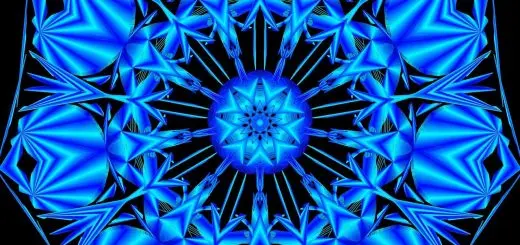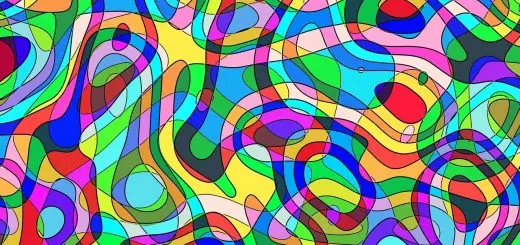Germanic Mythology: Tales of Gods & Heroes

Looking for more amazing products? Check out our online store and explore our collection here! Happy shopping!
Before diving in, please note: This post is for informational purposes only. If you’d like to know more about how we approach topics, feel free to check out our friendly Disclaimer Page.
Hey there, amazing readers! 
We’re committed to delivering quality posts, and your support (even just sticking around despite the ads) means everything to us. So, bear with us, and thanks for helping us keep the good vibes rolling. Now, on to the fun stuff!
TRANSLATE BUTTON AT THE END OF THE ARTICLE
A Quick Overview:
Germanic mythology is a rich tapestry of stories, legends, and beliefs that have been passed down through generations.
These tales center around gods, heroes, creation myths, battles, and wars, providing insight into the beliefs and values of the ancient Germanic peoples.
From Odin, the Allfather, to Thor, the god of thunder, and Freyja, the goddess of love and war, Germanic mythology is filled with powerful beings and epic adventures.
This article will delve into the origins of Germanic mythology, the main gods and heroes, creation myths, battles and wars, Norse influences, symbols and rituals, and the enduring legacy of these ancient tales.
Introduction to Germanic Mythology:
Germanic mythology encompasses the myths, legends, and beliefs of the Germanic peoples, who lived in Northern Europe during the pre-Christian era.
These myths were passed down through oral tradition and later recorded by Christian scholars, providing us with a glimpse into the spiritual and cultural practices of the ancient Germanic tribes.
The mythology is characterized by a pantheon of gods and goddesses, as well as heroic figures who embody the values of courage, strength, and honor.
Origins of Germanic Mythology:
The origins of Germanic mythology can be traced back to the Proto-Indo-European religion, which was practiced by the early Indo-European tribes.
As these tribes migrated and settled in different regions of Europe, their beliefs and myths evolved to reflect their unique cultural experiences.
The Germanic peoples, who inhabited regions such as Scandinavia, Germany, and the British Isles, developed their own distinct mythological traditions, drawing on both indigenous beliefs and influences from neighboring cultures.
The Main Gods of Germanic Mythology:
Germanic mythology features a pantheon of gods and goddesses who play key roles in the mythological narratives.
Some of the most prominent deities include:
Odin: The Allfather and ruler of Asgard, Odin is associated with wisdom, magic, and war.
Thor: The god of thunder and strength, Thor wields his mighty hammer Mjölnir to protect Asgard from threats.
Freyja: The goddess of love, fertility, and war, Freyja is a powerful and independent figure in Germanic mythology.
These gods and goddesses are often depicted as complex beings with their own motivations and personalities, reflecting the human-like qualities ascribed to them by the ancient Germanic peoples.
The Mighty Heroes of Germanic Mythology:
In addition to the gods and goddesses, Germanic mythology features a cast of heroic figures who embark on epic quests and battle fearsome monsters.
Heroes such as Sigurd, Beowulf, and Siegfried are celebrated for their courage, strength, and loyalty, embodying the ideals of heroism in Germanic culture.
These heroes often face formidable challenges and adversaries, showcasing their prowess and valor in the face of danger.
Creation Myths in Germanic Lore:
Germanic mythology includes various creation myths that explain the origins of the world and the gods.
One of the most well-known creation myths is the story of Ymir, the primeval giant whose body was used to create the world.
According to this myth, the gods Odin, Vili, and Ve fashioned the world out of Ymir’s body, forming the earth, sky, and seas.
These creation myths help to establish the cosmology of the Germanic universe and the relationships between the gods and the natural world.
Battles and Wars in Germanic Legends:
Warfare plays a significant role in Germanic mythology, with tales of epic battles and conflicts between gods, giants, and other supernatural beings.
The gods often engage in battles to defend Asgard from external threats, while heroes face off against monstrous creatures and rival warriors in epic duels.
These stories of warfare reflect the martial values of the ancient Germanic tribes, who prized courage, honor, and skill in battle.
Norse Influence on Germanic Mythology:
Germanic mythology is heavily influenced by Norse mythology, which originates from the Scandinavian regions of Northern Europe.
The Norse gods and heroes, such as Odin, Thor, and Loki, are integral to Germanic mythological traditions, blending seamlessly with the native beliefs of the Germanic tribes.
The influence of Norse mythology can be seen in the shared deities, narratives, and symbols that are present in both traditions, highlighting the interconnectedness of the various Germanic cultures.
Symbols and Rituals in Germanic Beliefs:
Symbols and rituals are essential components of Germanic mythology, serving as expressions of religious devotion and cultural identity.
The gods and goddesses are often associated with specific symbols, such as Thor’s hammer, Odin’s spear, and Freyja’s necklace.
Rituals, such as feasting, storytelling, and sacrifices, were performed to honor the deities and ensure the prosperity of the community.
These symbols and rituals are deeply ingrained in the mythological traditions of the Germanic peoples, reflecting their spiritual beliefs and social practices.
Legends of Odin, the Allfather:
Odin, also known as the Allfather, is one of the central figures in Germanic mythology.
As the ruler of Asgard and the leader of the Aesir gods, Odin is associated with wisdom, magic, and war.
He is often depicted as a powerful and mysterious figure, with one eye sacrificed in exchange for knowledge of the runes.
Odin is also a shapeshifter and a wanderer, known for his relentless pursuit of knowledge and his role as the god of poets and warriors.
Thor: God of Thunder and Strength:
Thor, the god of thunder and strength, is another key figure in Germanic mythology.
Known for his mighty hammer Mjölnir, Thor is a protector of Asgard and humanity, using his strength to defend against threats from giants and monsters.
Thor is also associated with fertility, storms, and agriculture, making him a multifaceted deity who embodies the forces of nature and the power of the elements.
Despite his brash and impulsive nature, Thor is a beloved and revered figure in Germanic mythology.
Freyja: Goddess of Love and War:
Freyja, the goddess of love and war, is a complex and powerful figure in Germanic mythology.
As a fertility goddess, Freyja is associated with love, beauty, and sexuality, embodying the feminine qualities of passion and desire.
However, Freyja is also a warrior goddess, leading the Valkyries in battle and choosing half of the fallen warriors to dwell in her hall, Sessrúmnir.
This duality of love and war makes Freyja a revered and enigmatic figure in Germanic mythology, symbolizing the eternal cycle of life, death, and rebirth.
The Legacy of Germanic Mythology:
The legacy of Germanic mythology continues to resonate in modern culture, influencing literature, art, and popular media.
The tales of gods, heroes, and monsters have inspired countless works of fiction, from J.R.R.
Tolkien’s "The Lord of the Rings" to Marvel Comics’ "Thor" series.
The themes of honor, loyalty, and sacrifice found in Germanic mythology have also shaped the values and ideals of Western civilization, reflecting the enduring power of these ancient tales.
By exploring the myths and legends of the Germanic peoples, we gain insight into the beliefs and values that have shaped human culture for centuries.
Conclusion:
Germanic mythology is a vast and intricate tapestry of stories that offer a glimpse into the spiritual and cultural practices of the ancient Germanic tribes.
From the main gods and heroes to creation myths, battles, and rituals, these tales provide a rich and diverse portrait of the beliefs and values of the Germanic peoples.
By exploring the legacy of Germanic mythology, we can gain a deeper understanding of the enduring influence of these ancient tales on modern culture and society.
Through the gods, heroes, and legends of Germanic mythology, we discover a world of magic, mystery, and wonder that continues to captivate and inspire us today.

The Enlightenment Journey is a remarkable collection of writings authored by a distinguished group of experts in the fields of spirituality, new age, and esoteric knowledge.
This anthology features a diverse assembly of well-experienced authors who bring their profound insights and credible perspectives to the forefront.
Each contributor possesses a wealth of knowledge and wisdom, making them authorities in their respective domains.
Together, they offer readers a transformative journey into the realms of spiritual growth, self-discovery, and esoteric enlightenment.
The Enlightenment Journey is a testament to the collective expertise of these luminaries, providing readers with a rich tapestry of ideas and information to illuminate their spiritual path.
Our Diverse Expertise
While our primary focus is on spirituality and esotericism, we are equally passionate about exploring a wide range of other topics and niches 

To ensure we provide the most accurate and valuable insights, we collaborate with trusted experts in their respective domains 
Our blog originally focused on spirituality and metaphysics, but we’ve since expanded to cover a wide range of niches. Don’t worry—we continue to publish a lot of articles on spirituality! Frequently visit our blog to explore our diverse content and stay tuned for more insightful reads.
Hey there, amazing reader! 
Check out our store here and take a peek at some of our featured products below! Thanks for being awesome!












